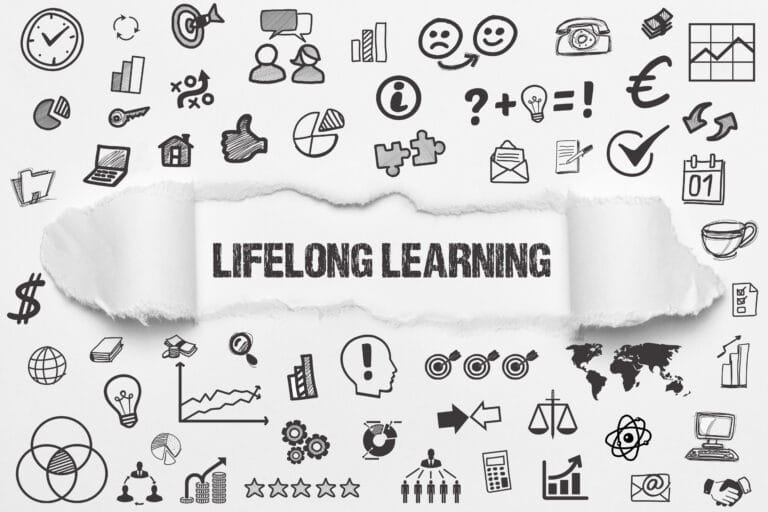Okay, let’s be real. Project management isn’t just about juggling schedules and sticky notes—it’s like playing a never-ending game of Tetris, but instead of colored blocks, you’re stacking deadlines, budgets, and stakeholders’ hopes and dreams. If you want to keep winning, you’ve got to level up continuously. Each new skill gives you an edge in managing deadlines, budgets, and team expectations. Think of it like you’re Mario and every new skill is a power-up. Wanna beat Bowser (a.k.a. that looming project crisis)? You need that fire flower of continuous learning. (my grandson would be so proud of me right now)
As someone who has worked in project management for over 25 years and provides project management training, I get it—staying informed is the difference between being a project superhero and just trying to stay afloat in a sea of spreadsheets. Whether you’re new to the field or you’ve been leading projects for years, lifelong learning is key. Let’s get into why it’s important and and how you can stay sharp without getting overwhelmed by all the changes
Why Continuous Learning is Key to Project Management Success
Continuous learning is the fuel that keeps your project management engine running smoothly. Whether it’s adopting new tools, managing hybrid work, or getting your team on board with new processes, keeping your skills current helps you stay adaptable and effective.
Adapting to New Tools and Tech
Remember when we all collectively freaked out about a new season of Stranger Things? Well, maybe “freaked out” is a stretch, but I know I was pretty excited. That’s kind of what it feels like when new tech hits the project management world. Suddenly everyone’s talking about it, and if you’re out of the loop, you’re Steve Harrington—cool, but one step behind. AI-powered tools like ChatGPT, Trello’s automation, and Power BI are here to make your life easier. These tools help automate repetitive tasks, provide real-time insights, and make data-driven decisions easier. But you need to know what you’re doing to use them effectively. Continuous learning makes sure you know when to use that demogorgon-fighting bat (too deep?). Stay current, or risk becoming lost in the Upside Down.
Key Areas for Continuous Learning in Project Management
To stay ahead, there are specific areas you need to focus on. Think of these as different classes in the “school of project management” that will help you tackle all the challenges thrown your way.

1. Emerging Technologies
AI and automation are rapidly changing how projects are managed. Tools like predictive analytics can help you foresee risks before they become problems, and automation can streamline tasks that used to take hours. Keeping up with these technologies means learning how to integrate them into your workflow effectively—turning what used to be hurdles into opportunities for efficiency.
2. Soft Skills Development
Project management isn’t just about deadlines and budgets; it’s about people. Developing soft skills like emotional intelligence, negotiation, and team building is crucial. When your team feels understood and supported, they perform better. Leading isn’t just about giving orders; it’s about listening, empathizing, and motivating. Invest time in building these skills, and you’ll find that managing even the most challenging projects becomes smoother.
3. Methodology Updates
Sticking to one project management methodology in today’s world is like only listening to one genre of music—who does that? Hybrid project management, where you blend Agile and Waterfall, is the Spotify playlist you never knew you needed. It takes the structure of Waterfall and the adaptability of Agile and mashes them together into a beat you can actually dance to—or at least get your team to march along with. Staying informed about new methods helps you adapt, giving you the ability to choose the right approach for the right situation.
How to Keep Your Skills Fresh
1. Take Classes and Webinars
Attending project management classes offers valuable insights that you can’t get from a quick search online. Whether it’s mastering hybrid methodologies or improving your soft skills, my classes dive into real-life scenarios that prepare you for the complexities of modern projects.
2. Join Professional Organizations

Joining groups like PMI (Project Management Institute) can be incredibly helpful. Certifications like PMP are not just valuable credentials; they are also gateways to a community of professionals who share insights, experiences, and support. Being part of these networks keeps you connected to the pulse of the industry. Plus, being around other professionals is like attending an Avengers meeting: you share stories, get new ideas, and sometimes just need someone else to say, “Yeah, that Thanos is a real problem, isn’t he?”
3. Learn Online
Platforms like LinkedIn Learning, Coursera, and Udemy are the Netflix of professional development—they offer on-demand access to courses on topics such as AI in Project Management and Change Management. Look for courses in AI for Project Management or Change Management. These platforms make it easy to learn at your own pace, so you can fit continuous learning into your busy schedule.And the best part? You can watch in your pajamas—just maybe skip the popcorn.
4. Stay Informed
Reading industry blogs or listening to podcasts is a great way to stay updated without feeling overwhelmed. Blogs like ProjectManagement.com and mine, of course – and podcasts focused on project management trends, like PM Happy Hour (one of my favorites), provide quick, actionable insights that help you stay in the loop and prepare for new challenges. It’s like keeping up with the Kardashians—but instead of drama, it’s data analytics, and instead of outfit changes, it’s tool upgrades.
Keep Learning, Keep Growing
Continuous learning is like a survival guide for project managers. The rules change, the obstacles evolve, and adaptability is key. Whether it’s learning about AI, brushing up on Agile, improving your power skills, or taking on a new certification, staying sharp is what helps you thrive—not just survive.
The future belongs to those who keep growing. I have project management courses that can help you master new tools, methodologies, and skills that that will make you an even stronger leader. Let’s grow together, one skill at a time.






